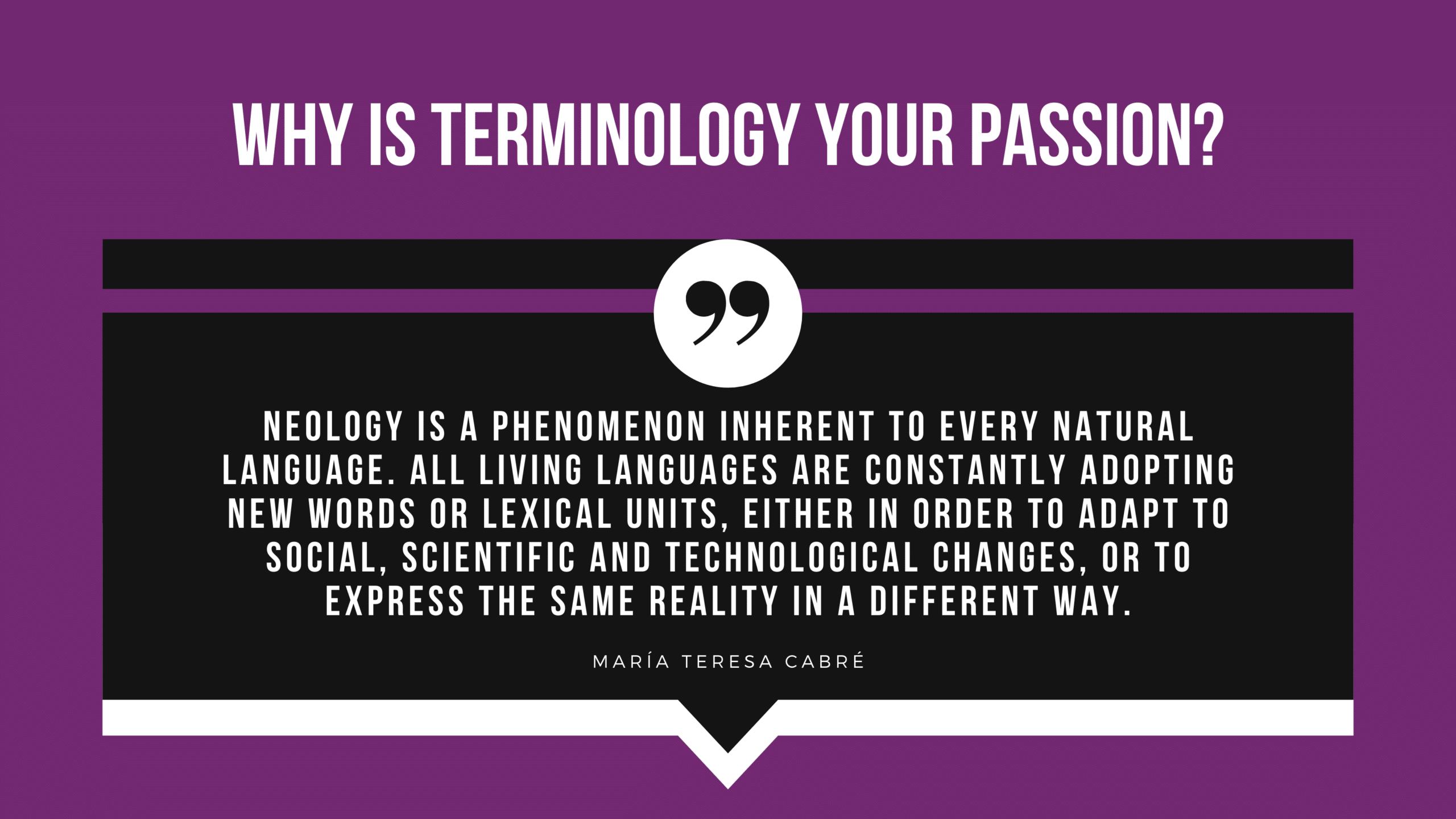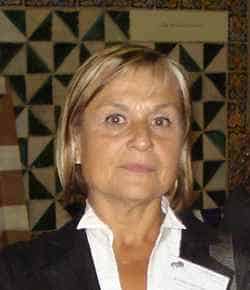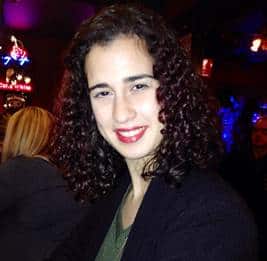
 María Teresa Cabré has been a professor of Terminology and Linguistics at the Universitat Pompeu Fabra (UPF) since 1994. She is now also a professor emerita at UPF, where she develops teaching and research activities. She founded the University Institute for Applied Linguistics (IULA), which she chaired from 1994 to 2004, as well as Iulaterm, its internal research group. She also founded the Observatori de Neologia in 1989 at the Universitat de Barcelona, which was transferred to UPF in 1994 as a research project. In 2014, she was appointed coordinator of the Pompeu Fabra Professorship. She has been a full member of the Institute for Catalan Studies (Institut d’Estudis Catalans, IEC) since 1989. In June 2014, she was elected President of the Philological Department of the IEC
María Teresa Cabré has been a professor of Terminology and Linguistics at the Universitat Pompeu Fabra (UPF) since 1994. She is now also a professor emerita at UPF, where she develops teaching and research activities. She founded the University Institute for Applied Linguistics (IULA), which she chaired from 1994 to 2004, as well as Iulaterm, its internal research group. She also founded the Observatori de Neologia in 1989 at the Universitat de Barcelona, which was transferred to UPF in 1994 as a research project. In 2014, she was appointed coordinator of the Pompeu Fabra Professorship. She has been a full member of the Institute for Catalan Studies (Institut d’Estudis Catalans, IEC) since 1989. In June 2014, she was elected President of the Philological Department of the IEC
1. Firstly, could you tell me a bit about yourself and your academic background?
I have been teaching at universities since 1969. I first worked as an assistant lecturer in Spanish at the Autonomous University of Barcelona. Then I became an associate lecturer and lecturer, first in the Department of Spanish Philology and later, following its creation, in the Department of Catalan Philology at the University of Barcelona. In 1989 I became a professor at that university. In 1994 I transferred to the role of professor of Linguistics and Terminology at Pompeu Fabra University, which was created in 1990.
Both my academic background and my PhD focused on Romance Philology. My PhD thesis consisted of a lexicometric analysis of Spanish parliamentary discourse in the Thirties.
I therefore have a linguistic background and I have specialised in lexical analysis. Since the time that I started focusing on linguistics until around the Eighties, terminology was not a part of my career. I used to share Eugenio Coseriu’s view that terminology is simply nomenclature and it is therefore not part of a natural language nor is it of interest to linguists.
2. Could you tell us about your first steps in the field of terminology?
The democratic period in Spain began in 1976. The Constitution was adopted and the country was divided into autonomous communities, Catalonia among them. Catalonia established its own government, the Generalitat de Catalunya, one of the cornerstones of which was the adoption of Catalan as an official regional language.
A specialised seminar was organised in 1984. Around 30 experts, specialised media outlets and institutions were invited to participate by the government. We discussed the creation of what the following year would become the Termcat Terminological Centre. The Government of Catalonia and the Catalan Language Academy appointed me head of the centre.
3. What have been the highlights of your experiences in the various terminology associations to which you have belonged?
At the same time that I started to work for Termcat, I began my training in terminology via a course in Vienna (at Infoterm and University of Vienna) and a work placement in Quebec (in Montreal and Quebec). They were complete and rewarding experiences, which I tried to take with me back to Termcat. During the three years that I was head of Termcat, the work was fascinating but also really intense. During those three years, the centre worked actively and received international acknowledgement. By the time I changed jobs, in order to return to a university position, the centre was capable of arranging all the Olympic terminology needed for the 1992 Summer Olympics in Barcelona.
4. How did your time at the European Parliament contribute to your international and academic activity?
I have been collaborating with European Union bodies since 1985. One of the first places I visited when Termcat was being set up was the Commission’s terminology department. Together with my research group, Iulaterm, I helped to clean data in Eurodicautom. I gave three seminars for the Directorate-General for Translation in Brussels and two in Luxembourg. I am also in touch with the Commission’s Spanish Translation Unit, with whose members, together with other bodies, we have been working in depth on the Terminesp Project for about ten years.
5. In your opinion, how important is the work of the European Parliament and of the public version of IATE to the world of terminology?
As an international body of the European Union, IATE plays a key role in the fields of translation and terminology. The IATE database, which is the sum of all the terminological information contained in the European Commission’s Eurodicautom database and in the databases belonging to Parliament and the European Council, is the largest and most relevant term base in the whole of Europe. It is not only a point of reference for EU translators and interpreters, but also for translators in general across Europe and all around the world. Its importance is due to both the volume of data it contains and the linguistic diversity of that information.
6. In your opinion, how has the field of terminology evolved in Spain? What is your outlook for the future?
Terminology was an unknown discipline in Spain before translation schools were created. The establishment of such schools made it necessary to take terminology into account, especially given that most job opportunities for prospective translators lay in the specialist fields (legal and administrative, economic, or scientific and technical).
During the early years of the translation schools, knowledge about terminology was scarce. Most teachers in charge of the subject had never studied it before. For most of them, terminology was either the translation of technical terms coined in a foreign language, or simply common words used in specific disciplines. That is why an enormous need for terminology training appeared in Spain.
7. In a world that is governed and guided by social media and technology, the role of terminology is growing more significant. How do you deal with the constant appearance of new words in a language?
Neology is a phenomenon inherent to every natural language. All living languages are constantly adopting new words or lexical units, either in order to adapt to social, scientific and technological changes, or to express the same reality in a different way.
Loanwords are one of the existing resources for lexical updating. However, the use of loanwords can have sociolinguistic consequences. The so-called ‘loss of domain’ in a language is simply the result of the large-scale adoption of loanwords, as such words present the sole possibility for expressing concepts in that domain.
8. What advice would you give to young terminologists?
From my experience, the main piece of advice that I can give is to get sound training, with both a theoretical and a practical basis. Also, they should not be satisfied with any technical training that does not allow them to distinguish between different views, nor to become autonomous, critical professionals.
Interviewed by Andreia Nuno
Born in 1990 in Lisbon, Portugal. Studied Modern Languages, Literature and Cultures with English and Portuguese studies and a specialisation in Linguistics at the New University in Lisbon. Moved to Luxembourg three years ago and is now finishing her master’s degree at the University of Luxembourg. One of her passions is cinema, which motivated her to enrol at the University of Cinema in Luxembourg. Likes sushi, football and reading until the early morning.
